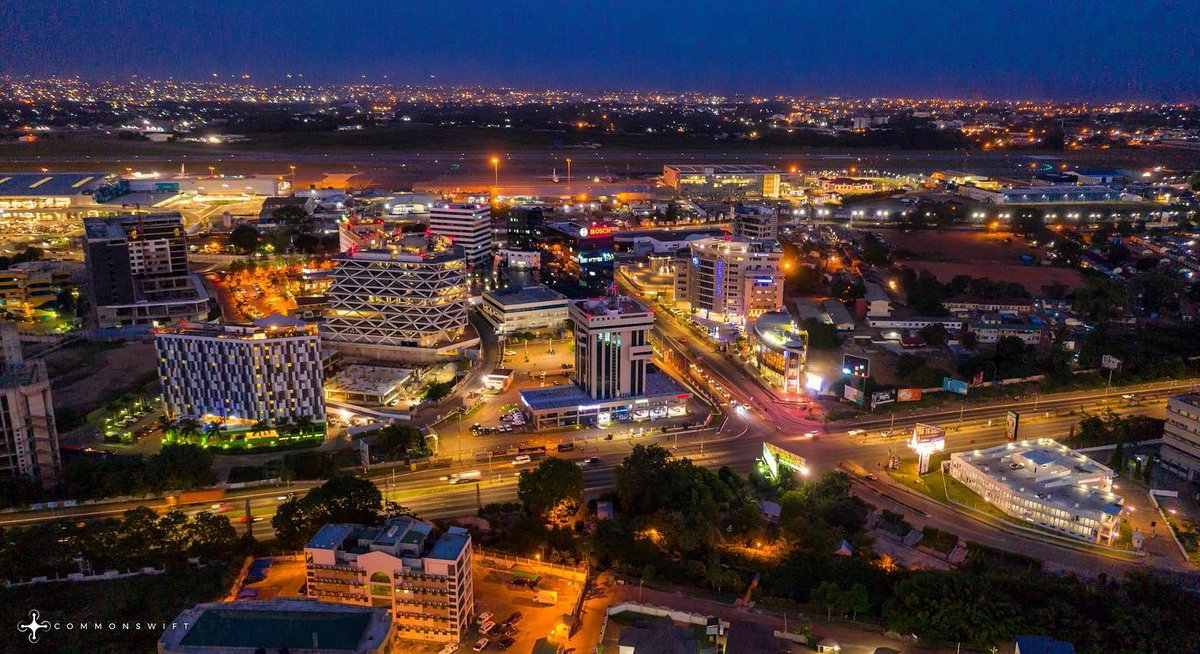Accra is the capital of Ghana, on the Atlantic coast of West Africa. Kwame Nkrumah Memorial Park honors Ghana’s first president, who helped lead the country to independence. The park contains Nkrumah’s mausoleum and a museum charting his life. Makola Market is the city’s vast, colorful bazaar. Popular seafront spots Labadi Beach and Kokrobite Beach offer golden sand and high-energy nightlife.
Accra, the capital and largest city of Ghana, is on the Gulf of Guinea (an arm of the Atlantic Ocean). The city lies partly on a cliff, 25 to 40 feet (8 to 12 meters) high, and spreads northward over the undulating Accra plains. The area’s susceptibility to faulting is the cause of occasional earthquakes.
When the Portuguese first settled on the coast of what is now Ghana in 1482, the present site of Accra was occupied by several villages of the Ga tribe, ruled from a parenting settlement, Ayaso (Ayawaso), located about 15 miles (24 km) north. Between 1650 and 1680 the Europeans built three fortified trading posts—Fort James (English), Fort Crevecoeur (Dutch), and Christiansborg Castle (Danish)—along the coast of the locality. While these European posts were being constructed, Ayaso was destroyed in a tribal war, and its population, together with that of the other major Ga towns on the Accra plains, was drawn to the coast by the prospect of profitable trade with the Europeans. As a result, three coastal villages—Osu (Christiansborg), Dutch Accra (later called Ussher Town), and James Town—sprang up, becoming the nuclei of what was to be Accra. The name Accra itself is a corruption of the Akan word nkran. It refers to the black ants that abound in the vicinity. It came to be applied to the inhabitants of this part of the Accra plains.
Accra grew into a prosperous trading center. The Danes and the Dutch left the region in 1850 and 1872, respectively, and in 1877 Accra became the capital of the British Gold Coast colony. In 1898 a municipal council was formed to improve the town. By the 1930s Accra was systematically laid out.
Accra is the administrative, economic, and educational center of Ghana. The city contains the head offices of all of the large banks and trading firms, the insurance agencies, the electricity corporation, the general post office, the large open markets to which most of the food supply comes, and the Accra Central Library.
In addition to the forts, important buildings include the Korle Bu General Hospital, which also houses the Ghana Medical School; the Holy Spirit (Roman Catholic), Holy Trinity (Anglican), and Methodist cathedrals; the national archives; and the national museum. Also located in the city are the offices of the Council for Scientific and Industrial Research and the Ghana Academy of Arts and Sciences. The University of Ghana (1948) is located at Legon, to the north. In addition, there are a football (soccer) stadium and a race course in the city. Independence Arch, in Black Star Square, is used for ceremonial parades.
Accra has well-paved roads and a good municipal bus service. A transportation hub, the city is also connected by rail to Kumasi, in the interior, and to the port city of Tema, 17 miles (27 km) to the east, which has taken over Accra’s port function. Accra is the site of Kotoka International Airport. The city’s chief manufacturers have processed food, lumber, and textiles. Pop. (2000) 1,658,937; (2010) 2,070,463.
Organization of African Trade Union Unity
Organization of African Trade Union Unity, French Organisation de l’Unité Syndicale Africaine (OUSA), labor organization founded in 1973 at Addis Ababa, Ethiopia, on the initiative of the Organization of African Unity and replacing the former All-African Trade Union Federation (AATUF; founded in 1961) and the African Trade Union Confederation (ATUC; founded in 1962). The ATUC from its founding had encouraged member affiliation with other international union organizations, while the more-militant AATUF had rejected such affiliation as incompatible with the development of a Pan-African Federation.
The OATUU includes some 70 affiliate national trade-union organizations from the more than 50 African countries that the group counts as its members. Its aims include building trade-union unity on the African continent, coordinating the action of the national union organizations under its fold, and supporting African workers and representing their interests. Its headquarters are in Accra, Ghana.
GALLERY





Book Labadi Beach Hotel in Accra | Hotels.com


